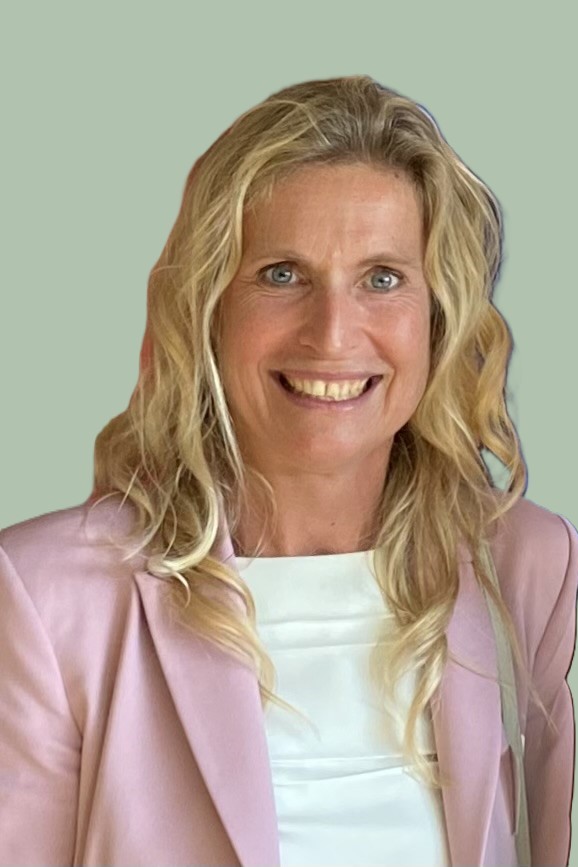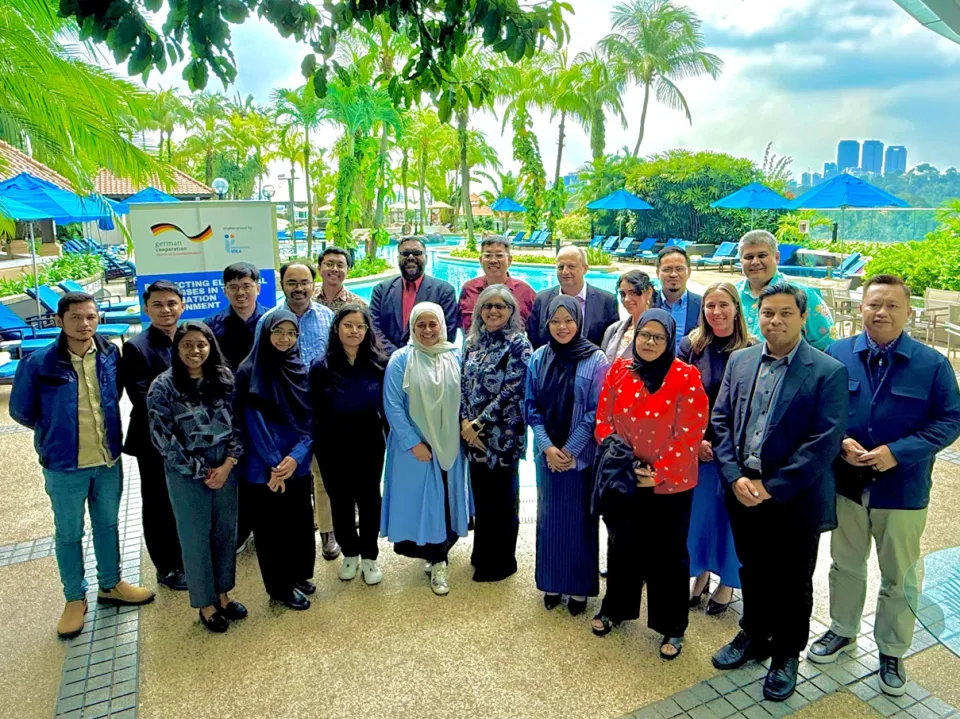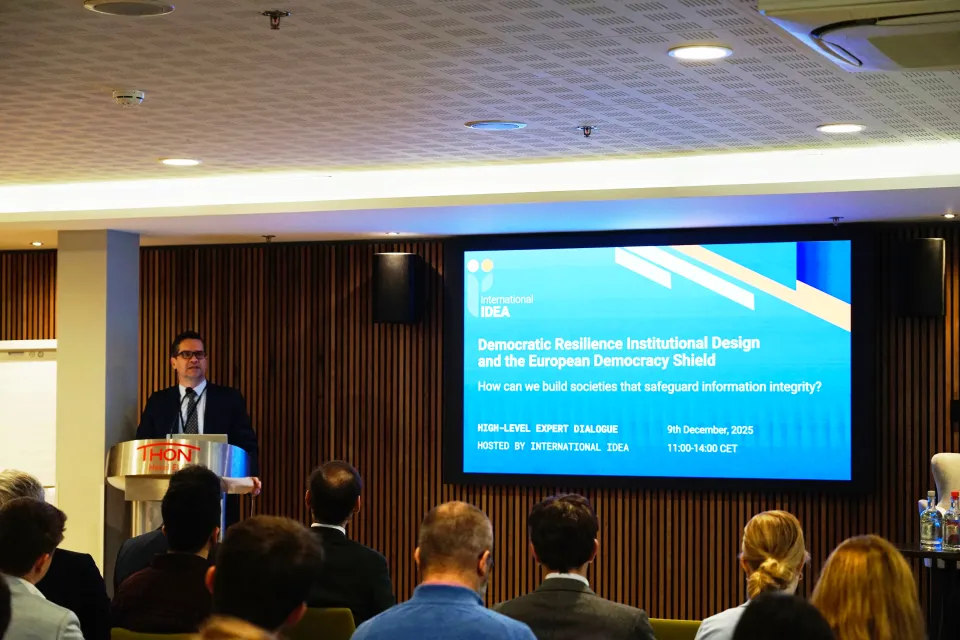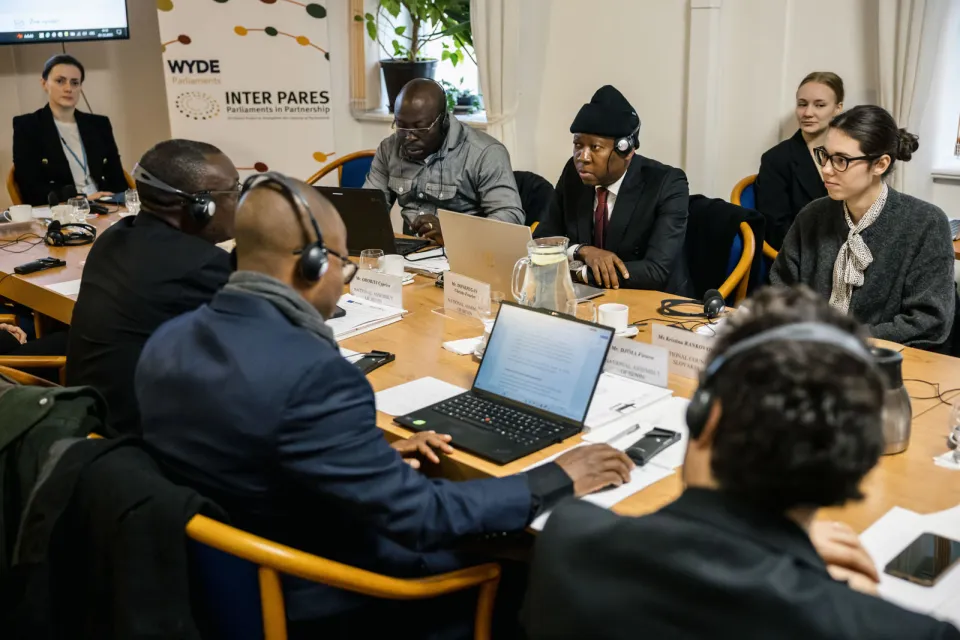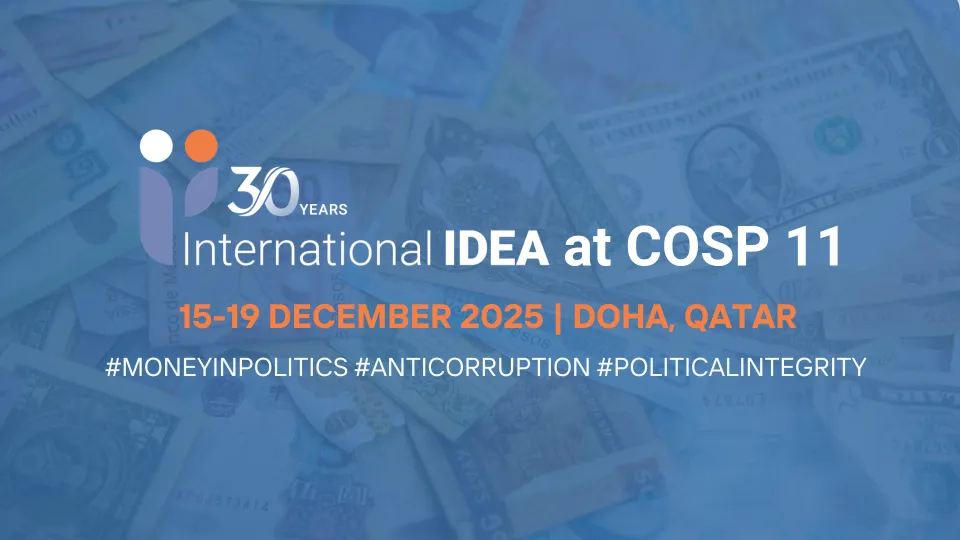International IDEA Member States discuss ways to achieve the Agenda 2030 through multi-level policy and business action
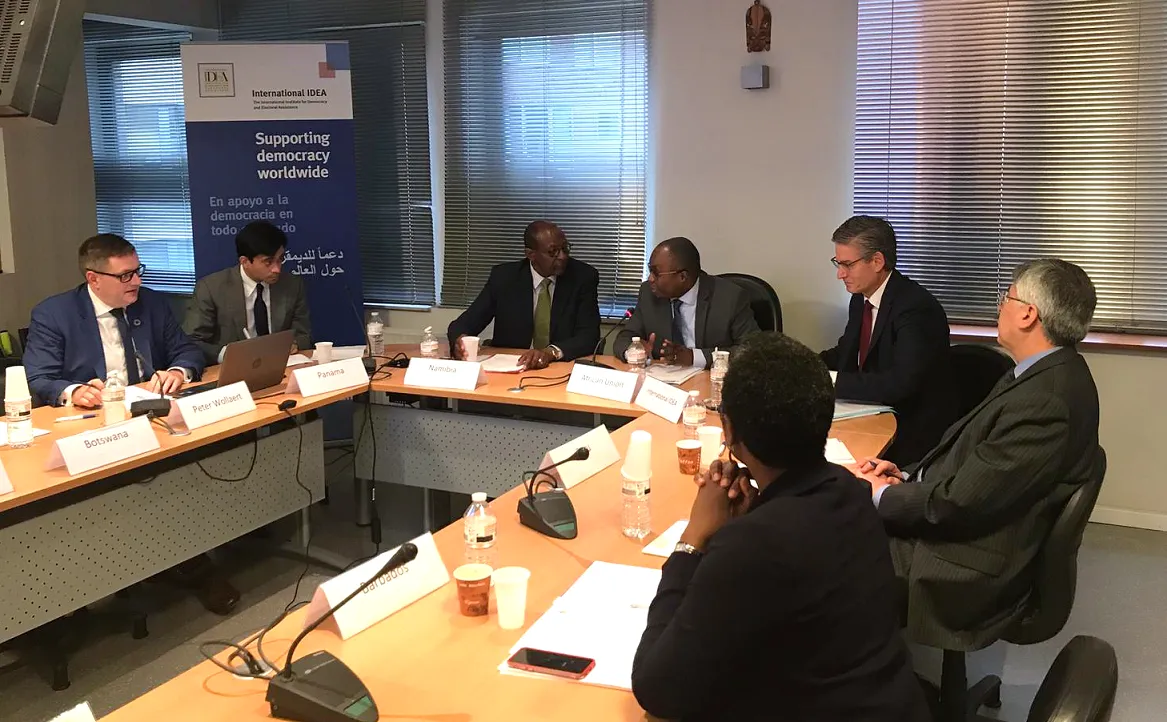
The Office of International IDEA to the European Union organized a Meeting of Representatives of International IDEA Member States in Brussels on 3 December 2018. The meeting was hosted by the Permanent Mission of the African Union to the European Union and the African, Caribbean and Pacific Group of States.
Serving as a Local Chair of the International IDEA Council of Member States, H.E. Dr Kaire Munionganda Mbuende, Ambassador of Namibia to Belgium, the Netherlands, Grand Duchy of Luxembourg and Head of the Mission to the European Union opened the meeting and chaired the proceedings. Remarks were delivered by H.E. Miguel Verzbolovskis, Ambassador of Panama to the European Union, on the occasion of joining International IDEA as the 31st Member State in 2018.
The guest speaker of the meeting was Peter Wollaert, UNITAR Fellow and Managing Director at the CIFAL Flanders. He presented the topic, “The SDGs: Global expectations to future-proof national and local decision making”, pointing at different levels of engagement by state authorities and other stakeholders across the globe. The Agenda 2030 for Sustainable Development (Agenda 2030) provides, through a set of 17 Goals and 169 Sub-goals, a vision and pathway for societies. The Sustainable Development Goals (SDGs) are to be achieved by authorities and societies, but also raise expectations from citizens towards their leaders. Growing demands of people and manifestations related to climate change and ecological solutions for society at all levels illustrate this development. The partnership with African, Caribbean and Pacific (ACP) countries post 2020 integrates the Agenda 2030 as an important source of inspiration and, hopefully, a game changer.
Countries worldwide can make use of an online SDG Index & Dashboards, including country cards and annual global reports, to track implementation progress. The challenge of our future is how to secure social development without increasing the ecological footprint. Society should be organized in such a way that natural resources are used in an efficient way to preserve resources for the future generations. The question can be asked whether the Agenda 2030 will be sufficient to achieve this, and whether differentiated approaches are needed since countries that are ahead socially, may be and/or fall behind on their ecological footprint.
The Agenda 2030 is about transforming our world. The following three key principles could serve as a guide for implementation processes:
1. Leave no one behind: developing ways to reach people who have not been reached before;
2. Glocalizing the Agenda 2030: targeting all levels of policy from global to local, and advancing mutual reinforcement and interaction; and
3. Triple bottom line: reinventing businesses by combining three key objectives: Profit, People and Planet. Partnership and Peace could complement these objectives.

State authorities should consider organizing campaigns to inform citizens, taking concrete actions, designing strategy and policy making, and engaging in transformation and transition. Governments can however not achieve this alone: to reach the level of ambition of the Agenda 2030, governments, businesses, citizens, academics and other stakeholders should engage and join forces.
The presentation was followed by a discussion.
Andrew Bradley, Director and Head of the Office of International IDEA presented the activities of International IDEA and the Office to the European Union, providing also an outlook on 2019 and reflections on management. H.E. Ambassador Mbuende highlighted the Namibian 2018 Chairship of International IDEA under the central theme of “Inclusive Democracy for Sustainable Development”, before closing the meeting.
The Office of International IDEA to the European Union organizes Member States meetings for representatives in Brussels on a bi-annual basis to discuss contemporary topical issues, promote Member States ownership of the Institute, and present the Office work programme for discussion.
